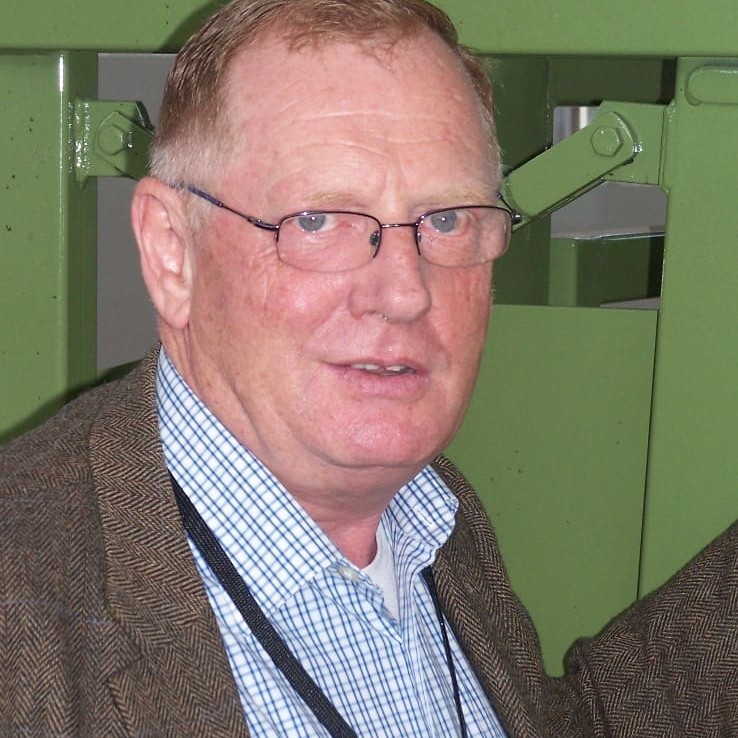A series of staff changes and redeployments are being announced by Meat & Livestock Australia this week.
The moves appear to be largely in recognition of changing priorities and circumstances within the service delivery company’s operations, including a more global approach to marketing.
Among the significant changes to occur in coming weeks:
- Current MLA North America region manager Stephen Edwards will return to MLA MLA in Australia, to join a strengthened global marketing team.
- Former general manager, Industry Communication and Engagement David Pietsch will move to the US to take up the role of regional manager, North America. He continues a sequence of appointments of MLA ‘corporate comms’ managers to the US regional role, following similar transitions by David Palmer (2002) and Scott Hansen (2009). Others 'non-comms' background to fill the role have included been Michelle Gorman.
- National Livestock Reporting Service manager Travis Parcsi, and Tim Kelf, who most recently has held domestic and international responsibility for the Industry Collaborative Agreements program, will leave the company.
MLA managing director Scott Hansen said the MLA staff ‘head count’ and corporate overheads would not significantly change as a result of the moves. MLA staffing costs would rise no further than CPI, he said.
“This round of staff changes is about how we most efficiently deploy resources to match industry’s objectives and balance our current blend of skill-sets around the team,” Mr Hansen told Beef Central.
Some of the changes were driven by the establishment this year of MLA’s global marketing team approach, rather than managing marketing activity at individual region level as was previously being done.
“We saw enhanced efficiencies and effectiveness through a global approach to marketing. More and more, we are seeing increasing opportunities in this area, and are seizing them when they present themselves,” Mr Hansen said.
“For example, should one region says it is about to do a project analysing the effectiveness of e-newsletters and web marketing, we’re now able to say, the US and China regions are interested in that as well, and we can integrate the three.”
However the reality was that MLA needed staff resources to provide that integrated approach.
Up until recently, the only person MLA had in a centralised marketing role was general manager marketing, Michael Edmonds, more recently joined by Andrew Simpson.
The departure of Tim Kelf, who had global responsibility for ICAs with industry stakeholders, will also leave a hole in global marketing service delivery. Andrew Simpson will now absorb the ICA management role into his responsibilities.
“MLA has always had some personnel, like Tim, working in broader global activity, but in the past it has been in specific program areas,” Mr Hansen said.
“When we adopted the current more global approach to marketing, we knew that we would need some resources that would assist the regional managers in cross-country programs and activities.”
“We’ve looked at opportunities as resources have been freed up – whether that be somebody leaving the company, or whether we still needed a previous role, under the current global approach. The formula that worked well five years ago does not necessarily work so well today,” he said.
“It’s a matter of evolving these roles to best suit the task at hand. As with anything, it is not ever about one person, but the group of people around them in terms of strengths and weaknesses, and how to complement each person’s skills.”
 Stephen Edwards has been with MLA for a number of years, firstly as business development manager and then region manager in the US. He is a chef by training, having owned a number of his own restaurants in the US in the past.
Stephen Edwards has been with MLA for a number of years, firstly as business development manager and then region manager in the US. He is a chef by training, having owned a number of his own restaurants in the US in the past.
He will return to a role in the Australian-based global marketing team, acting as a centralised resource around activities including the coordination of trade shows across regions; coordination of resources with regards to chefs and food service activity; and to drive some of MLA’s specific product development and nutritional campaigns pioneered earlier in the Australian domestic market, but now being taken internationally. Roles like his will also remove some of the contractor arrangements MLA has had around chefs in marketplaces and trade show coordination.
 David Pietsch, currently MLA’s general manager business capability, and until recently GM industry communications and engagement, will move to the US as regional manager. Mr Hansen said each regional office represented a different focus, and the North American market was oriented squarely around business development, market access and alliance relationship-building.
David Pietsch, currently MLA’s general manager business capability, and until recently GM industry communications and engagement, will move to the US as regional manager. Mr Hansen said each regional office represented a different focus, and the North American market was oriented squarely around business development, market access and alliance relationship-building.
Mr Pietsch, having been born and raised on a cattle and sheep property and whose work career has involved clear understanding of agricultural and regulatory systems like NLIS, LPAs and NVDs, was well equipped to handle this critical aspect in successful in business development in the US market, Mr Hansen said.
“Secondly, the role in the US around market access is very much about negotiating with agencies and government departments, which again is a skill-set that Mr Pietsch is ideally suited to. The same applies in collaboration with US and Canadian cattle producers to ensure that beef producers everywhere maintain a united bloc on trade and market access,” he said.
After many years of dedicated service to market reporting, Travis Parcsi will depart MLA as manager of the National Livestock Reporting Service. He will not be replaced, with the NLRS team now reporting directly to MLA chief economist and manager of market information services, Tim McRae.
 As mentioned above, the global Industry Collaborative Agreement responsibilities previously managed by Tim Kelf, who departs the producer company early in the new year, will now be managed by global marketing team member, Andrew Simpson. “Mr Simpson’s strong background in processing makes him ideal for working with exporters on their ICA programs, as well as coordinating market task force activities, and coordinating reports for internal and external use from across the regions,” Mr Hansen said.
As mentioned above, the global Industry Collaborative Agreement responsibilities previously managed by Tim Kelf, who departs the producer company early in the new year, will now be managed by global marketing team member, Andrew Simpson. “Mr Simpson’s strong background in processing makes him ideal for working with exporters on their ICA programs, as well as coordinating market task force activities, and coordinating reports for internal and external use from across the regions,” Mr Hansen said.
Mr Kelf is among MLA's longest serving employees, having started with AMLC 33 years ago, back in 1979. Prior to his current role he served for 21 years as regional manager, Southeast Asia and the Chinas.
With the changes that have been announced, and the likelihood that an additional MSA staffmember will be appointed as part of the move to the MSA optimisation model, Mr Hansen said the company would still remain below its staffing cap, as required by the MLA board since about 2006.
“We are deploying, or in some cases redeploying staff into areas that require increased focus, but we are doing that at all times with an eye to costs and keeping our head-count static,” he said.
